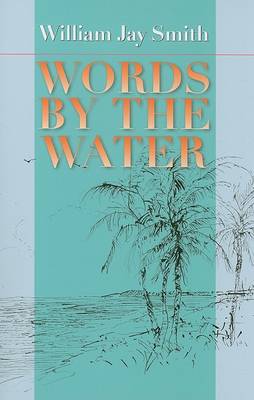Johns Hopkins: Poetry and Fiction
2 total works
The poems included in the "The world below the window", carefully selected by William Jay Smith, cover the entire career of one of America's acknowledged masters, a writer who deftly defies categorization. Smith melds an array of influence - from French symbolists to W.H. Auden and Wallace Stevens - into his own unmistakable voice, moving powerfully from the compressed, dark lyrics of his pre-war poetry ("Quail in Autumn") to experiments with a long free-verse line in the 1960's ("The Tin Can"). Here are memorable lyrics that capture the horror of World War II ("Dark Valentine: war poems") and hilarious light verse ("The tall poets") that exhibits the wit that has always enlivened even Smith's darkest works. Previously uncollected recent poems reveal the poet's tremendous range as he moves from discussing the ironies of age in "The shipwreck" to the dramatic intensity of "The Indian removal", a series of poems dealing with the forced removal of Indian tribes east of the Mississippi.
William Jay Smith has been one of the most respected figures on the literary scene for more than half a century. Two of his thirteen poetry collections were finalists for the National Book Award, and the present volume is clearly the work of a true American master. The volume opens with a poetic sequence, "The Atoll," concerning the tiny coral island of Palmyra during World War II. Finding himself on the narrow rim of an extinct volcano at almost the exact center of the Pacific, water on all sides, breakers pounding the reef, the poet evokes the distinct sensation that he had of being at the heart of Herman Melville's "oceans vast." In lines resonant and memorable, he recalls the "terrifying beauty" of standing at night on what seemed then the very edge of the earth. The poet next addresses our current daily terror-war and destruction. In "Invitation to Ground Zero" he presents a moving tribute to a victim of the September 11 disaster, while in "Willow Wood" a soldier, having recently lost both his legs in a roadside blast, utters without a trace of self-pity strong words on future wars.
Tragedy marks many of these pages, but Smith does not forget his lifelong commitment to witty and satiric verse. To introduce several hilarious pieces, he reprints the celebrated poem "Dachshunds." Simplicity and musicality have given his wedding songs a wide audience. Several of them are here, including an extraordinary new one, "The Bouquet." Variety has always characterized Smith's work. Words by the Water is particularly varied and unusually youthful and fresh.
Tragedy marks many of these pages, but Smith does not forget his lifelong commitment to witty and satiric verse. To introduce several hilarious pieces, he reprints the celebrated poem "Dachshunds." Simplicity and musicality have given his wedding songs a wide audience. Several of them are here, including an extraordinary new one, "The Bouquet." Variety has always characterized Smith's work. Words by the Water is particularly varied and unusually youthful and fresh.

